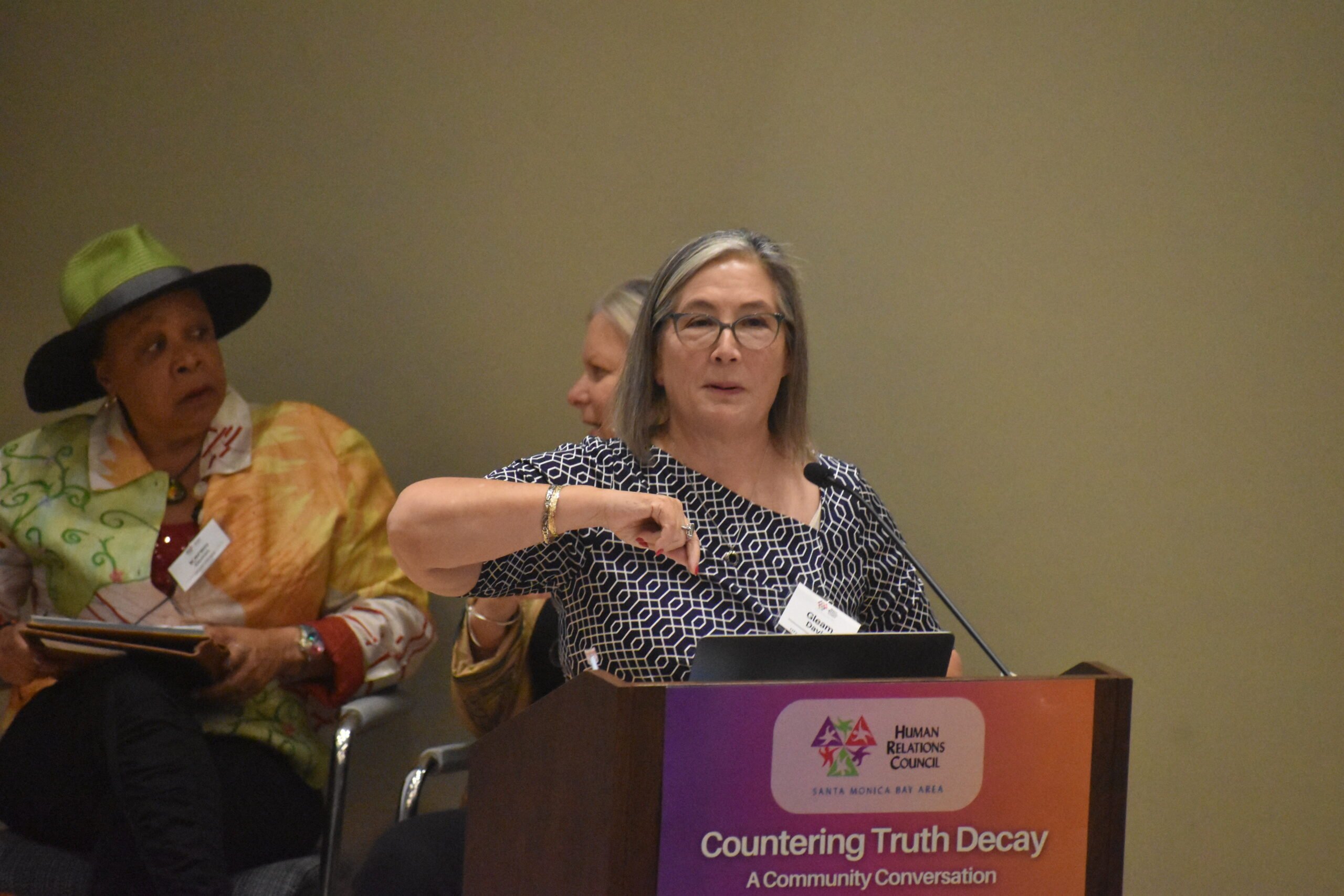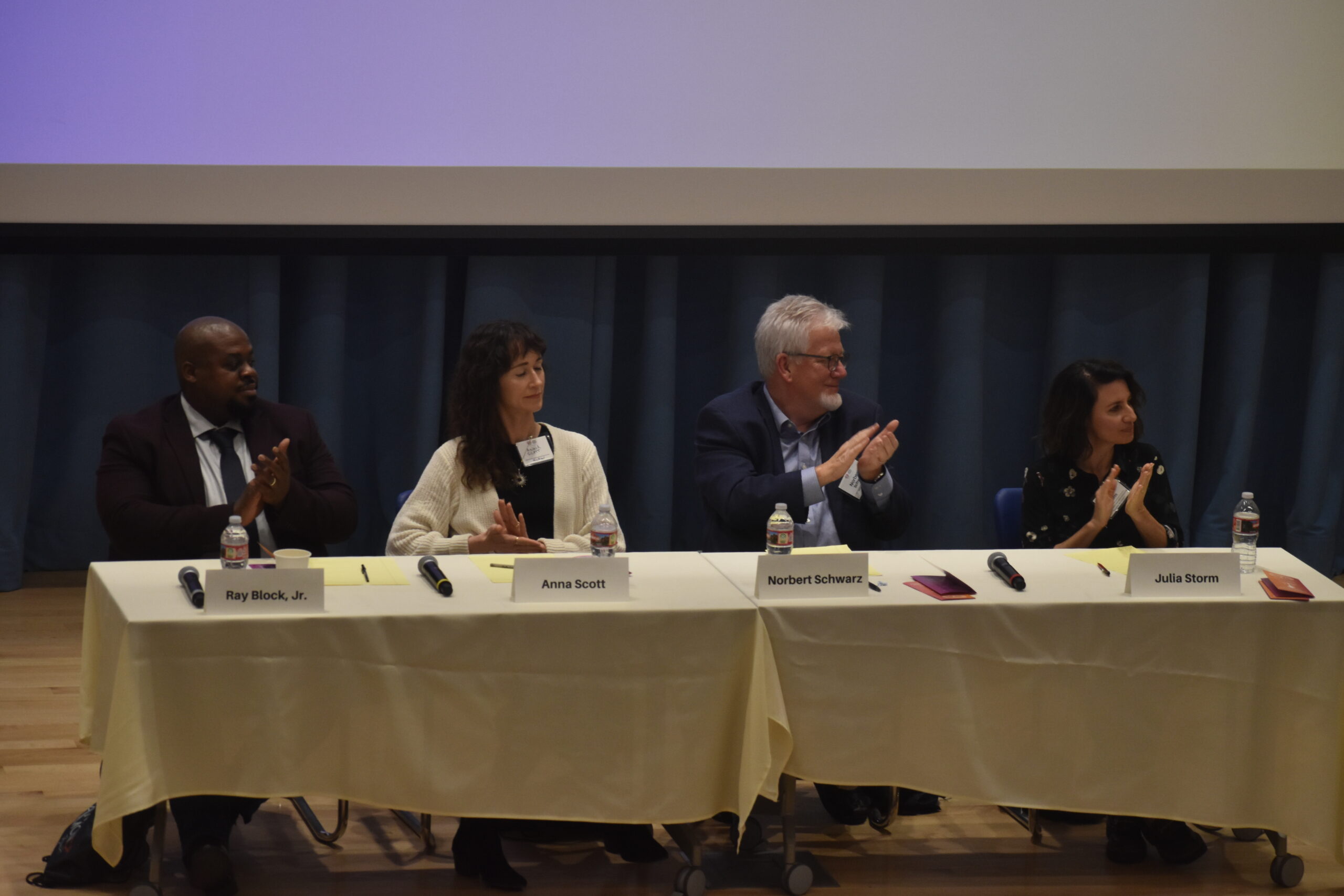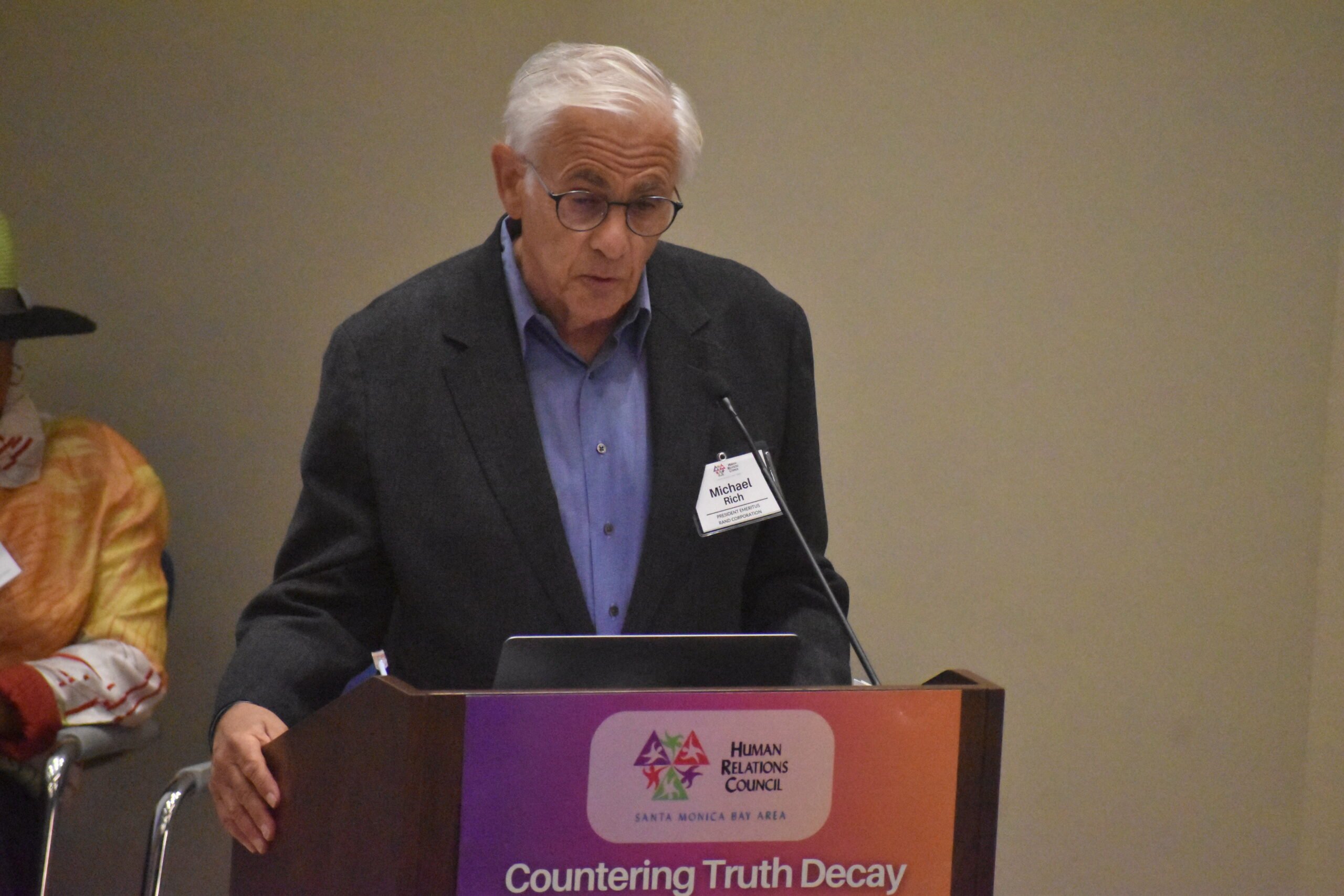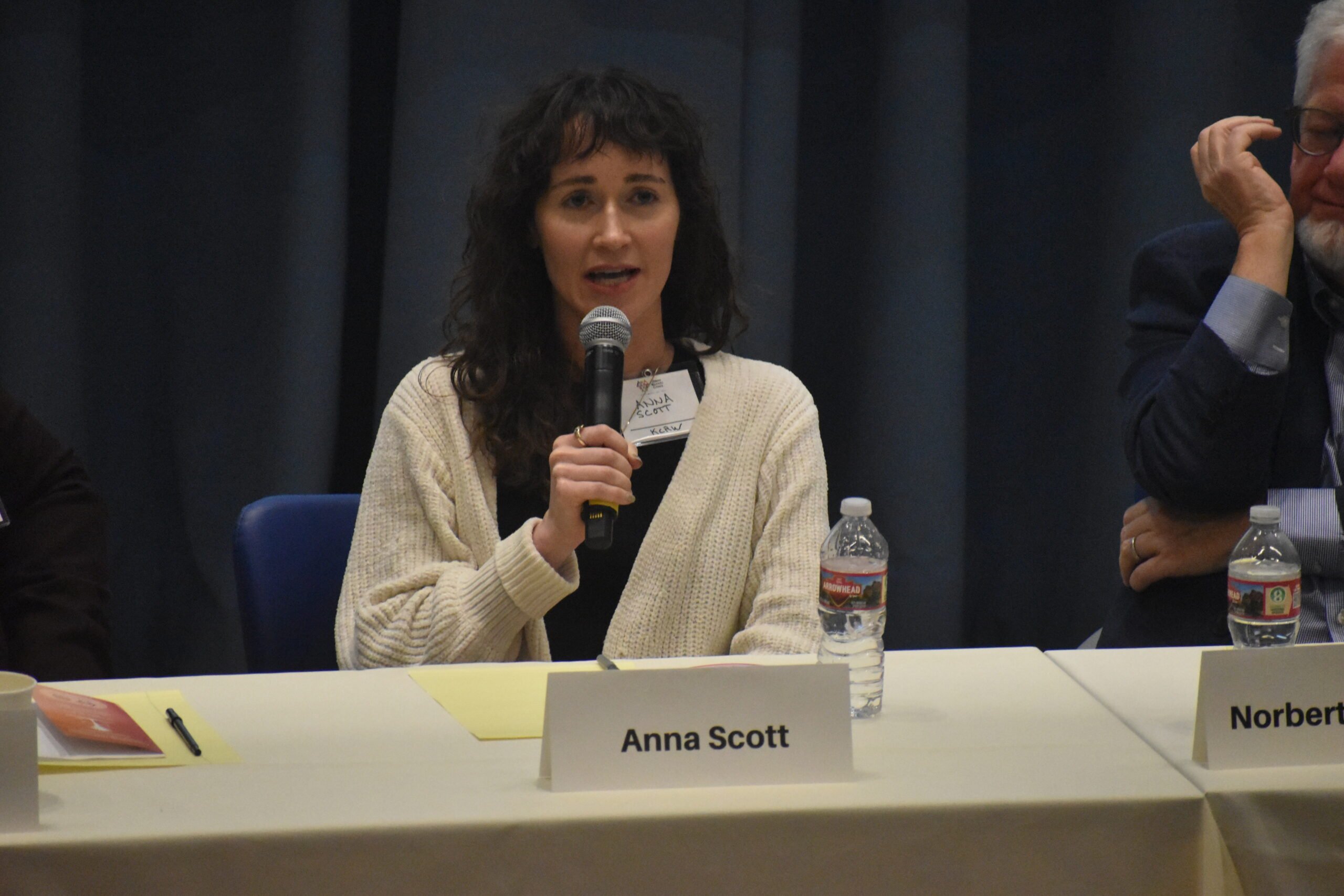Looking at any social media feed typically means viewing an argument between two or more parties. Whether it be something as light as the latest sports contest or movie, or a heavier subject like politics, current social climate dictates that a fight will be had, and usually not a well-informed one. A break from past discourse comes in the form of arguing parties not agreeing on the same sets of facts, something author and RAND Corporation President Emeritus Michael D. Rich coined "truth decay."
At Santa Monica College’s Student Services Center Orientation Hall Monday evening, Rich and several panelists held a community conversation about "Countering Truth Decay," sponsored by the Human Relations Council of Santa Monica Bay Area. Rich co-authored the 2018 book Truth Decay: An Initial Exploration of the Diminishing Role of Facts and Analysis in American Public Life with Jennifer Kavanagh, a work that became widespread enough that former President Barack Obama put it on his 2018 summer reading list.
Though the book is now five years old, Rich says that the analysis "still holds up pretty well" in discussing "the most consequential challenge" of public life, that being the diminishing role of facts and analysis. The author cited reasons like cognitive and media biases for heightened disagreement about "objective, verifiable, observable facts," while also pointing out shortages in the American education system to prepare new generations for the world of "truth decay."
"We’ve fallen behind teaching skills that citizens need to determine the viability and resources to distinguish facts in this new, different, rapidly-changing information landscape," Rand said.
One of the panelists, Los Angeles-based Digital Media Wellness Educator Julia Storm, expanded on this idea by saying that children are at a particular disadvantage when it comes to figuring out "what is and isn’t real." Storm noted that media consumption has become "overwhelming," and that it is important to teach kids to be critical thinkers around media. She also said that parents should be viewing media alongside children to create constructive conversations.
"Most of us go about our day consuming media very unconsciously," Storm said. "You get bored, you pull out your phone, you don’t realize [it] … you’re scrolling through whatever, we don’t make very intentional decisions about what we allow in. And as such, we allow everything."
Norbert Schwarz, Provost Professor in the Dornsife Department of Psychology and the Marshall School of Business at the University of Southern California (USC), added that mediums like cable news and social media rely on catching eyeballs for their business, and that "outrage" elicits a bigger reaction, prompting heightened negative emotions that leave people susceptible to lies and half-truths.
Representing the field of journalism on the panel was Anna Scott, who covers housing and homelessness for KCRW. Scott talked about how people’s strong beliefs on a subject can be changed just by shifting the optics on how a story is reported, such as the shift in who cared about an unhoused encampment in West Los Angeles when it was veterans instead of regular unhoused people. Those who typically wouldn’t care, or have negative feelings about, the plight of the unhoused were suddenly very supportive of the veterans.
"I just saw this opportunity to turn everything upside down, and maybe talk to people in a way that could engage them in a subject that they often come in thinking ‘I already know everything about this, I know what the story is gonna be’ … it was an opportunity to talk about solutions, because it is a powerful example of how we can break through this awful, awful polarization," Scott said.
Current RAND research focus in the matter of "truth decay" is centered in the "mezzo" level, above individuals and before government. RAND Corporation Distinguished Chair for Countering Truth Decay, Ray Block Jr., referred to the phenomenon as a part of "groupness" and group thinking, and he wishes to solve the issue in a "creative way" before the death of honest discourse.
"Think about how truth decay can make it so that you don’t feel like you can engage in dialogue, or you might start worrying about whether or not you can figure out what is real … I’m worried that these things will undermine, undervalue, and somehow [mess] with our democracy," Block Jr. said.
As a working member of government, this statement hits home for Santa Monica Mayor Gleam Davis, who was invited as a special guest for the SMC event. Davis called the matter of truth decay "truly one of the most pressing challenges of our current world."
"I think not a day goes by that some of us don’t wonder how someone can believe something is true when it seems so obviously false to us, or how someone can believe something is false when it seems so obviously true," Davis said. "For those of us working in local government, it’s a challenge we face every day. I can’t tell you how many times … I’ve had people say ‘I don’t want to know the facts … I know what I feel’ and while that is certainly [their opinion], it is not the basis for good policy."
Truth Decay: An Initial Exploration of the Diminishing Role of Facts and Analysis in American Public Life is available online at the RAND Corporation’s website, rand.org












